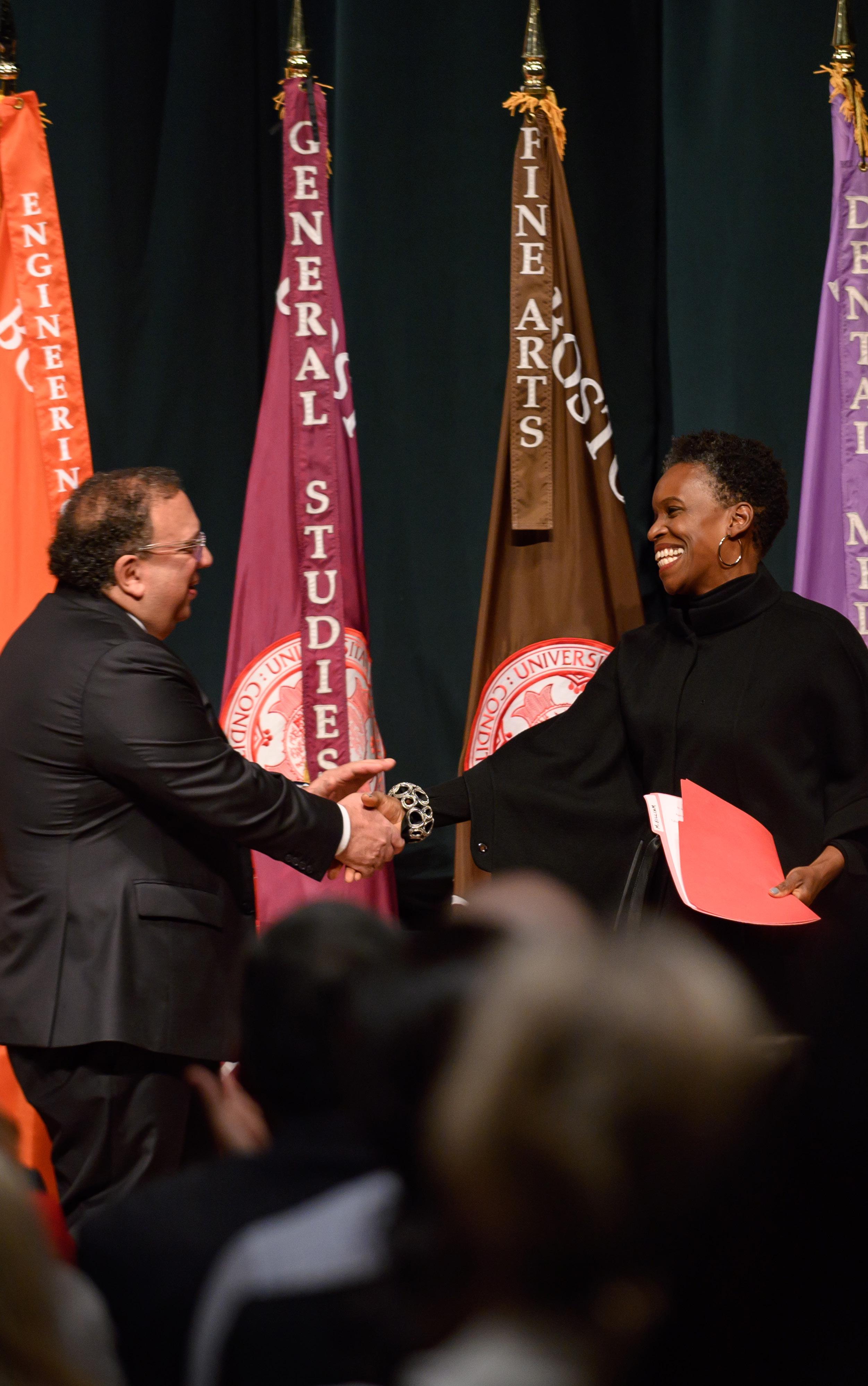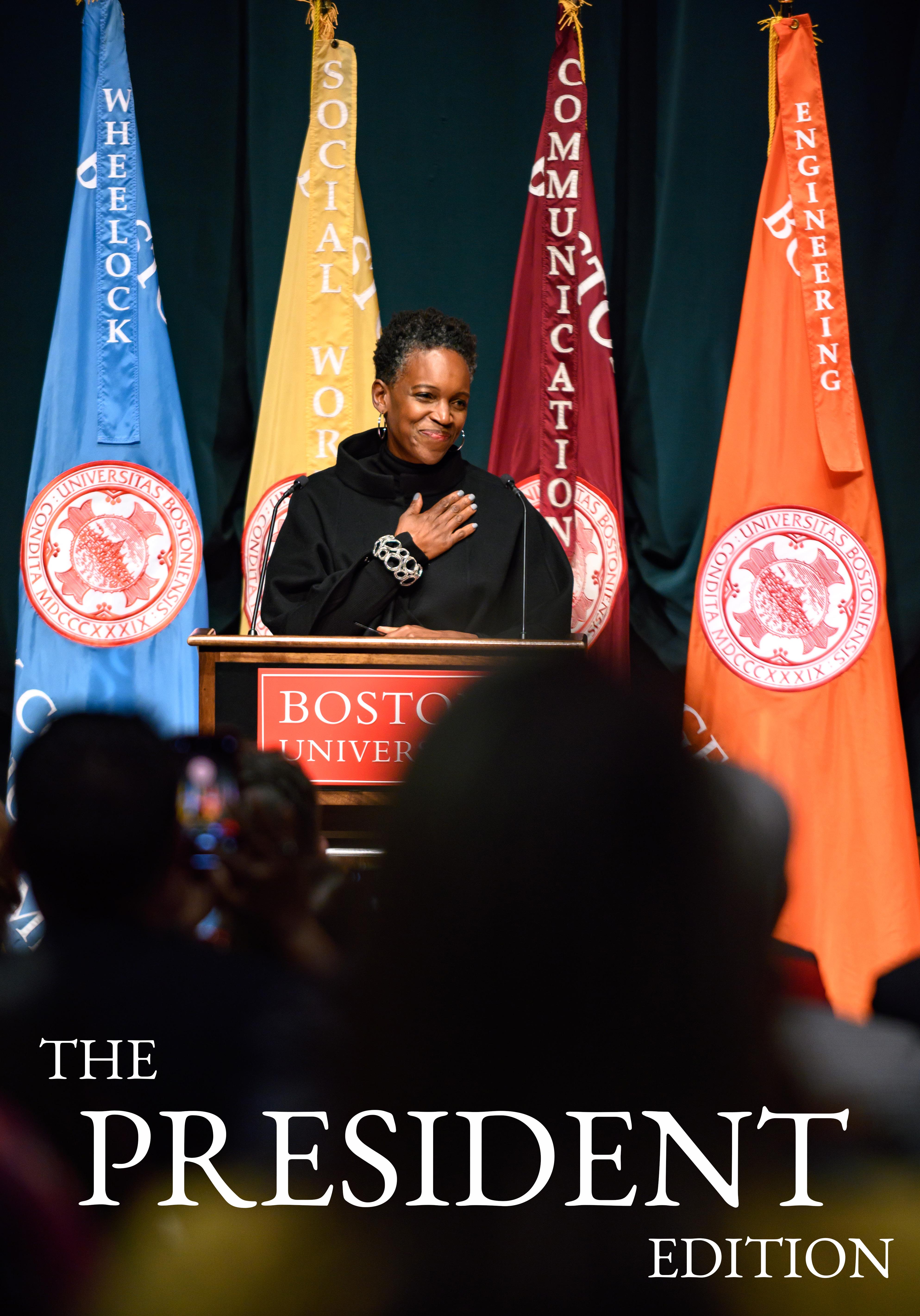

Introducing Melissa Gilliam: A life dedicated to education reaches new peak
By EDEN MOR Features Co-EditorMere hours after she was announced as BU’s next president, the first Black woman to take on the prestigious role, Melissa Gilliam sat on the eighth floor of 1 Silber Way, in an office that will soon become hers.
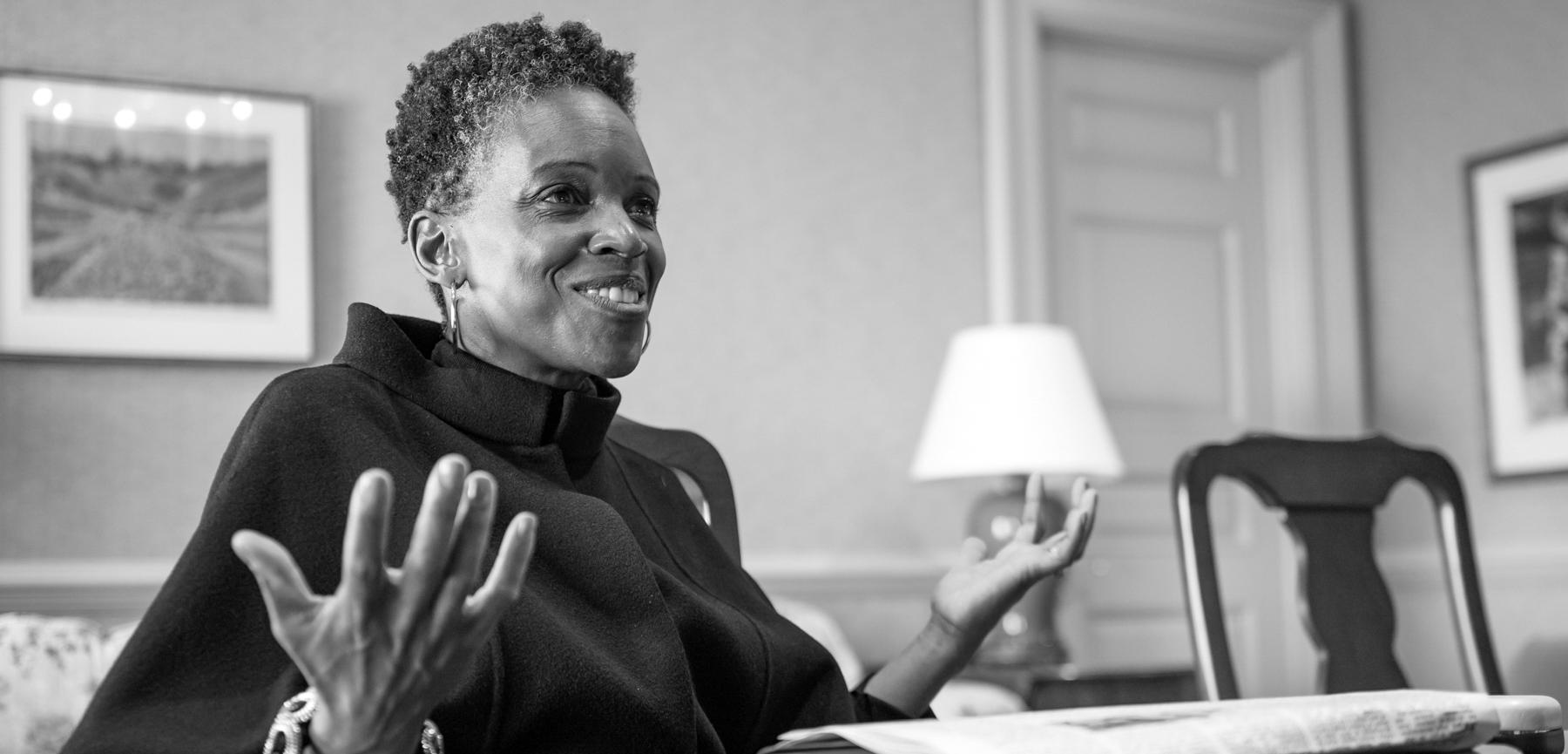
She spoke calmly, with an air of confidence befitting a woman of her qualifications. Five degrees. Award-winning research. Leadership positions in various institutions of higher education. It seems almost impossible.
But before Gilliam achieved all of that, before she became a doctor, a researcher or an administrator, she describes herself as “a young person living in a city” — a young person teeming with “a strong sense of human possibility.”
“I also came with a sense of, ‘anyone can do anything in the world, and you don’t have to be afraid,’” Gilliam said. “You had to figure out what you are passionate about.”
Gilliam is one of three daughters who called Washington D.C. home — more specifically, Mount Pleasant, a neighborhood in the northwest quadrant of the nation’s capital.
She described her upbringing rather fondly, an amalgamation of the unique qualities that defined D.C. at the time. For one, Gilliam’s hometown was leagues more racially, ethnically and economically diverse than the United States that surrounded it — a fact which seemed “super normal” to her at the time.
But her upbringing seems far from it.
For one, Gilliam’s father, Sam Gilliam, was a color
field painter and abstract artist, credited as one of the “great innovators of postwar American painting,” according to Pace Gallery. He is said to have transformed the medium and the contexts in which it was viewed, creating art at the height of the Civil Rights movement.
“I really grew up surrounded by art and artists. People go and see their parents at work, and I would go see my dad at the studio,” Gilliam said. “That was always a really normal part of our lives.”
Gilliam’s mother, Dorothy Butler Gilliam, made history as the first Black female reporter at The Washington Post, hired at just 24 years old. She went on to become a style editor, and a trailblazer in the journalism industry.
“If you pursue a career in art or journalism, there are many places where people would say ‘don’t do that, you’ll never make a career,’” Gilliam said.
Gilliam’s parents helped instill the value of education in her, making it a guiding principle in her life.
“If I ever needed to make a change in something I was doing, I would just say, ‘oh, Mom, Dad I’m going back to school,’ and they’d say, ‘that’s great,’” she said.
Gilliam quite literally crossed an ocean in pursuit of education. After earning a bachelor’s degree in English literature from Yale University, she pursued her master’s degree in philosophy and politics from Oxford University in the United Kingdom, an experience she speaks about fondly.
“Once you’re across the Atlantic, you can just travel anywhere. So I traveled around the world,” Gilliam said, reminiscing about a
month spent alone in India.
She said her academic U-turn — her decision to pursue a vast and seemingly disconnected set of degrees — came down to “a little bit of intention and a little bit of serendipity.”
“I am always interested in impact,” Gilliam said. “I don’t have some long-term vision, but I am interested in how do I use what opportunities I’ve had to make a difference in other people’s lives. And that’s how I ended up in medical school.”
After graduating medical school, Gilliam completed a residency in gynecology and obstetrics, while also pursuing research. Gilliam said she had the opportunity to sit down with young people and talk about their health.
She aims to translate her vast experience working with young people into a leadership style built upon communication with a young student body.
Through her research, Gilliam came to realize that medical professionals often made “assumptions about what young people wanted,” failing to understand their personal lives.
She became keenly aware of medicine’s lack of “tools for listening and for hearing.”
“You have to have a lot of humility and not assume that you’ve really heard somebody, just because you asked a question and they answered,” Gilliam said.
In 2012, Gilliam cofounded the Center for Interdisciplinary Inquiry and Innovation in Sexual and Reproductive Health at the University of Chicago, “an awardwinning research center at the University of Chicago that takes an asset-based approach to understand
and address the social and structural determinants of adolescent sexual and reproductive health,” according to the center’s website.
One of the center’s highly-regarded projects was the creation of “Bystander,” a video game intended to counteract sexual violence and teach young adults about their social responsibilities.
“Games allow safe risk taking. Teens expect to make mistakes in games and expect to lose. As a result, young people discover skills and abilities they did not know they had. We call this a high-tech, high-touch approach,” Gilliam told Chicago Magazine in 2015.
It seems that now, even as incoming president of BU, the ability to truly listen is one Gilliam still prides herself on.
Although she was hesitant to comment on the controversy over last spring’s commencement speaker, CEO of Warner Bros. Discovery David Zaslav, she recalls a similar experience in which she challenged a speaker she took issue with during her own graduation.
“I think it’s absolutely fine for students to raise their voices,” Gilliam said. “We want to be a campus where people can talk about their opinions.”
Though returning to Boston serves as somewhat of a homecoming for Gilliam, who attended medical school at Harvard University, she admits she has yet to fully tune in with the BU community.
“How do you speak to students? Where are there opportunities to meet with students? How do we want to do that?” Gilliam recalled contemplating.
During the ceremony announcing BU’s 11th president, Chair of
the Board of Trustees Ahmass Fakahany spoke of Gilliam as more than just an academic, but as a person of admirable moral integrity.
“What I want to share with you, is in addition to her keen intellect, is her heart and character,” Fakahany said. “Without heart, and that extra level of personal conviction and inner moral compass on what’s right, everything else becomes nearly transactional.”
In coming to BU, Gilliam leaves a senior leadership team at Ohio State which speaks highly of her “never-ending” energy, said Wendy Smooth, the senior vice provost for inclusive excellence at Ohio State.
“Her deep sense of thoughtfulness around decision-making is unparalleled,” Smooth said. “You’re very fortunate to have her.”
As for her plans for the future, Gilliam said an agenda can’t be made without listening to people “who actually have a lived experience.”
“Sometimes, it’s the students that have to set the agenda and let us know where you want us to work and where we can be impactful,” she said.
From issues of diversity, equity and inclusion to sustainability on campus, it’s safe to say that Gilliam will have a lot on her plate as she officially assumes the role of president on July 1, 2024.
Until then, it’s Gilliam’s dedication to making change that speaks louder than all of her achievements.
“I think with education, you change an individual’s life, ad then you can change your family’s life,” she said. “That’s really how you change communities and societies.”
Students involved in search committee for new president
By LINDSAY SHACHNOW AND SYDNEY TOPF Campus Co-EditorsStudents took part in the selection process of Boston University’s 11th president, Melissa Gilliam, alongside the Presidential Search Committee and the Board of Trustees.
Members of the student government had the opportunity to speak with the presidential candidates and relay their feedback about the candidacy to the search committee. Undergraduates were also able to participate in listening sessions last Fall.
“Something that myself and the other students on the search committee immediately noticed was how empathetic and studentcentered her priorities were,” Student Body President Dhruv Kapadia, a senior in the College of Arts and Sciences, said of Gilliam. “We were rooting for her.”
Dean of Students Jason Campbell-Foster wrote in an email that “students were selected to meet with the finalists and provide feedback to the search committee.”
At Gilliam’s announcement ceremony, BU Board of Trustees Chair Ahmass Fakahany thanked students for their “feedback” and “candor” about student involvement in the search.
“You grounded us and always reminded us we’re actually here for you, those students before you and those who will follow you,” he said.
BU spokesperson Colin Riley said this was not the first time students were involved in the selection process — there were student members on the search committee that led to former President John Silber’s appointment.
The members of student government were not involved in the initial search, they just met with the final slate of candidates, Kapadia said.
Senate Chair Hanna Dworkin, a senior in CAS, said student government wrote an open letter to the search committee last spring calling for student
involvement on the committee.
Roughly a month later, the search committee invited members of the student government to interview candidates over the course of last semester and into the summer.
Dworkin said she felt that the Chair of the Presidential Search Committee and the Chair of the Board of Trustees listened to student input.
“They were really more than receptive and I felt that our opinion really played a big role in this decision,” Dworkin said.
Kapadia said they met Gilliam months ago and spoke with her about the priorities and ongoing issues that students are facing.
“One priority that I brought to every interview was how the candidate would view BU as an institution,” he said. “I think more often than not we see
past leadership at BU treat our institution as a corporation rather than a place of higher education and so I made sure to try and gauge a candidate’s opinions on that specific question.”
Gilliam’s answer, Kapadia said, was “by far the best” because she cared deeply about making BU an institution that is “centered around students rather than profit.”
Ilana Keusch, a senior in CAS, said Gilliam seemed “smart” and “personable” during her interview as a potential candidate.
“She obviously cared a lot about academic institutions and the students that contributed to them,” said Keusch, who is Chief Justice of student government. “She’s very invested in her research and just in knowledge in general, and I think that’s very important.”
Keusch said multiple members of the search committee assured the students that their feedback was taken into consideration.
The listening sessions, open to all undergraduates, invited students to share their thoughts about the qualities and experience the search committee should look for in a presidential candidate.
Although she only sat in on a few of the sessions, Navya Kotturu, a senior in CAS and Sargent College of Health and Rehabilitation Sciences, said she felt heard by the search committee.
“I would like to think that based off of our feedback and based off of the general consensus that we’re very happy with who they chose, that they did listen to what we had to say and really prioritize those things,” said Kotturu, who is student government executive
vice president, said.
Still, Kapadia said students’ involvement in the search was “very limited.” While he was glad that student government leaders were able to speak with candidates, Kapadia said he wished other student leaders could have also been included.
“I think the absence of a fully standing student committee member on the actual search committee was telling. I think, in that regard, BU did fail,” he said. “I really do think students should have been put more at the center of this process.”
Stella Tannenbaum contributed to the reporting of this article. Ilana Keusch wrote for The Daily Free Press in 2021. She was not involved in the writing or editing of this article.
Students react to announcement of new president
By SYDNEY TOPF AND MATTHEW EADIE Campus News Co-Editor and City News Co-EditorAfter Boston University announced Melissa Gilliam as the University’s 11th president on Wednesday, students across BU expressed their thoughts about the historic appointment.

The Board of Trustees announced their decision to appoint Gilliam as president, after Robert Brown stepped down as president in Fall 2022. Kenneth Freeman will remain as interim president until the end of the 2024 school year.
In the past, students have asked for a more in touch administration, according to previous Daily Free Press reporting.
Shana Weitzen, a junior in the Frederick S. Pardee School of Global Studies, said the appointment of Gilliam was a welcome surprise for her and other students.
“I think people were kind of worried with the decisions that they were going to make in the hiring process and I think they kind of blew all of our expectations out of the water with the choice that they made,” Weitzen said.
Gilliam is BU’s first female and first Black president in the 184year history of BU.
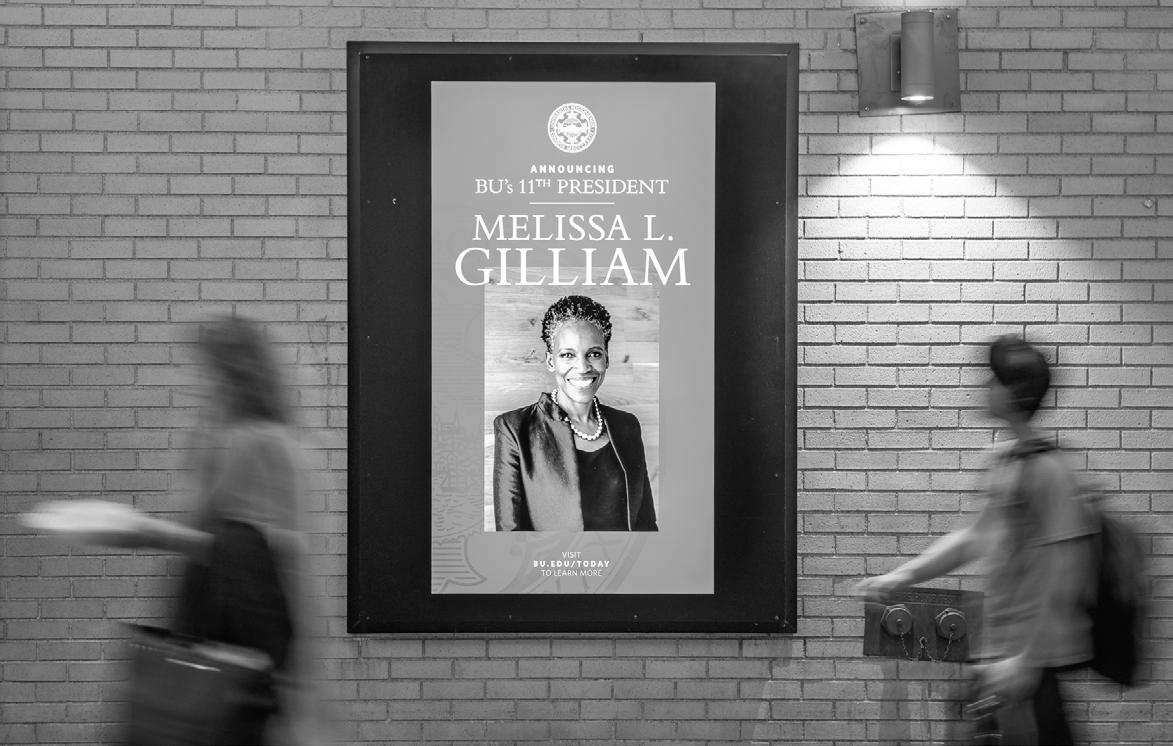
“I think having a woman of color as the president is another really big step for BU and I think that’s a really big thing for a lot of students on campus who can see themselves in the new president,” Weitzen said.
Gilliam, a graduate of Yale University, the University of Oxford, Harvard Medical School and the University of Chicago, has been executive vice president and provost at The Ohio State University since 2021.
“My mom and I were freaking out over her bio last night and reading it together,” Weitzen said.
“I think that’s really amazing to see someone like her holding such an important role in higher education, which usually has so many barriers to people of color.”
Emeie Burger, a junior in the College of Fine Arts, said she noticed discussion about two different aspects of Gilliam’s identity.
“I also think it’s interesting how part of this conversation is her identity being brought up … as opposed to her as a leader and as a doctor,” Burger said.
Dean of Students Jason Campbell-Foster said the best way for a university leader to understand students is by “being with them in their spaces.”
“My hope is that the president will continue to find organic
opportunities to connect with students across the university, whether that be engaging in their spaces, getting feedback from them over lunches, dinners, and being together in community with the students in natural ways,” Campbell-Foster said.
Campbell-Foster said he felt an “electrified feeling” in the air.
“Just walking around campus [on Wednesday] there was a lightness in the air and I think students, faculty and staff are just so excited about where we are going next and how we can be part of that change,” he said.
Campbell-Foster said he is hoping to continue the “collaborative” relationship with Gilliam that he’s had with the interim and emeritus presidents.
“[I’m hoping] for a shared vision for what we believe needs to be in place in order to empower young people here at BU to really reach their fullest potential,” he said.
Zoe Moore, a senior in the College of Communication, said their professor broadcasted the livestream announcement of Gilliam in their cinematography class on Wednesday.
“That was awesome that my professor shined a spotlight and encouraged everyone to care and be there on the day,” Moore said.
Moore called the announcement a “breath of fresh air” for a
university that had been under the leadership of Brown for nearly two decades.
“Everyone’s really frustrated, I feel like coming out of the pandemic still and it’s nice to have a new face,” Moore said.
Moore said they hope Gilliam, once president, directs more attention to COM to ensure funding is structured more equitably across the University, adding that they feel STEM programs like the Faculty of Computing and Data Science have been in the spotlight for too long.
“My experience in COM has
been definitely worsened by the structure of the university,” Moore said. “[CDS] had their moment, I think it’s time to help elsewhere.”
In her welcome speech on Wednesday morning, Gilliam addressed the welfare of students among others as one of her priorities in her new role.
“We have to commit to the mental, physical and social wellbeing of our students, faculty and staff,” Gilliam said at her announcement speech.
Chloe Patel and Lindsay Shachnow contributed to the reporting of this article.
Former Commonwealth Avenue royalty:
BY DAISY LEVINE Features Co-EditorIn its nearly two centuries of existence, Boston University has had ten distinguishable presidents. The ten white men, composed of five Methodist ministers, two Johns and two Williams, all saw the University grow at different times. In honor of the BU Trustees’ latest appointment, here is a list of all of the University’s past presidents.


William Fairfield Warren, BU’s first president (18731903)
When Boston Theological School became Boston University, they appointed the Theological School’s last acting president, former pastor William Fairfield Warren. He served for thirty years, embracing American liberal arts while concurrently incorporating the practices of British and German universities.
Warren kickstarted BU’s dedication to inclusion. Even hundreds of years ago, BU offered higher education to any student, regardless of race, sex or religion — a practice not widely received by other American universities at the time.
In 1877, during Warren’s presidency, BU became the first university in the United States to award a doctorate to a woman, Helen Magill White.
William Edwards Huntington, BU’s second president (1904-1911)
After serving in the Union Army during the Civil War and attending the University of Wisconsin, William Edwards Huntington trekked from his family’s home in Illinois to the BU School of Theology to become a Methodist minister. He received his doctorate in 1882, and was then appointed dean of BU’s College of Liberal Arts. In 1904, he was appointed president.
During his time at BU, Huntington saw the University as an opportunity to promote higher education amid a fast-paced environment. He hoped to understand the needs of a bustling American city and use this understanding to help make BU an institution in tune with urban life.
Lemuel Herbert Murlin, BU’s third president (19111924)
Lemuel Herbert Murlin
came from rural beginnings, and he began his adult life as a Methodist minister. He served as president of Baker University in Kansas from 1893 to 1911 before coming to BU.
As president, he, like Huntington, found BU’s location its most covetous asset. Coming from farmland in Ohio, his greatest goal during his presidency was to rightfully serve the city of Boston. In 1920, he purchased a large mass of land stretching between the Charles River and Commonwealth Avenue that he hoped would become the school’s permanent campus, which most urban institutions lacked. However, in 1924, Murlin resigned when his small funds could not match his large hopes for unity. He took the offer to become president of DePauw University, his alma mater.
Daniel L. Marsh, BU’s fourth president (19261951)
Another former Methodist minister who graduated from the School of Theology, Daniel L. Marsh was an active creator of social welfare programs for the urban poor. Once appointed president, he preached service learning
“for the sake of others” to his students. Although his term was plagued by the Great Depression and World War II, he led BU through the intense financial stringency.
Building on Murlin’s legacy, Marsh was able to complete the third president’s unfinished campus project. On BU’s new campus, Marsh incorporated Sargent College and established the School of Social Work, the School of Nursing, the General College and the School of Public Relations, which would go on to become the College of Communication.
Harold C. Case, BU’s fifth president (1951-1967)
Harold C. Case also pursued graduate study at the School of Theology before becoming a Methodist minister. Case promoted post-World War II expansion.
In 1953, he established the African Studies Program and appointed esteemed Black theologist Howard Thurman dean of Marsh Chapel. Additionally, he built more on-campus housing, while also founding the College of Engineering, the Metropolitan College and what would become the College of Fine Arts.
A look into BU’s past presidents

Arland F. Christ-Janer, BU’s sixth president (19671970)
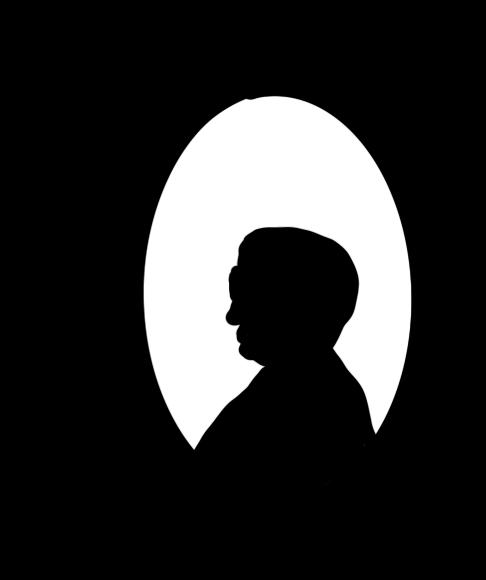
At a time of “social unrest,” as described by BU, Arland F. Christ-Janer assumed the presidency. The Students for Democratic Society declared a Stop the Draft Week, a protest involving turning in draft cards in disagreement with the Vietnam War, during the week of his inauguration. Following that, an African American student organization made a list of demands and staged a nonviolent sit-in at his office.
Despite his acquiescence, radical student actions still continued. He resigned in 1970, serving the secondshortest term of any noninterim BU president at only three years, and the 1970 commencement was canceled due to the threat of violent protests.
John Silber, BU’s seventh president (1971-1996)
A controversial yet transformative figure for BU, John Silber shifted the university from a predominantly commuter school to an esteemed research institution. Appointed president in 1971, the self-described
“financial and educational disarray” at BU proved a lot of room for improvement.
In the 1970s, Silber hired future Nobel Prize-winning faculty, built the endowment, expanded the campus and had law-breaking protesters arrested. His actions sparked discontent, but he undoubtedly changed the University’s trajectory, according to BU’s website.
Silber established BU’s long-running partnership with Chelsea Public Schools in 1988, a program that set out to aid the failing school system, half of whose student body was unable to graduate in four years. He also worked as a professor in the College of Arts and Sciences and the School of Law.
In 1995, he was issued an honorary degree from BU. He resigned only to become university chancellor in 1996, serving the BU community for a total of 32 years.
Jon Westling, BU’s eighth president (1996-2002)
Rhodes scholar Jon Westling called BU home for over two decades. Prior to his presidency, he served in other campus positions, including provost and executive vice president.
During his time at BU, he stressed the importance of academic standards for the admissions process, initiated numerous construction projects, opened apartmentstyle dormitories and set six consecutive University fundraising records.
Aram V. Chobanian, BU’s ninth president (2003-2005)
Born into an Armenian immigrant community in Rhode Island, Aram V. Chobanian was a worldrenowned cardiologist. Chobanian dedicated his life to esteemed medical research, serving the BU community since 1962.
Chobanian was named dean of the medical school in 1988, after serving over two decades on the School of Medicine faculty. In 1996, Provost of Medical Campus was added to his title.
In 2003, the University was under fire for a conflict between Silber and the initial hire. Former NASA chief Daniel Goldin was all set to be BU’s next leader, saying he is “both humbled and exhilarated by the opportunity” in an interview with former weekly newspaper B.U. Bridge. However, 24 hours before he was supposed to take office, as reported by Science.org, Goldin was voted out by the Board of Trustees that unanimously appointed him just months earlier. The controversy received national coverage.
After initially announcing his retirement from the Board of Trustees, according to a 2003 article by The Harvard Crimson, Silber decided to reverse his decision when Goldin was appointed. The Crimson wrote that Goldin, however, wanted him to stand by his initial statement.
Chobanian served as interim president in 2003 before being officially appointed in 2005. He was a leader in the merging of Boston City Hospital, the city’s public hospital, and Boston University Medical Center Hospital to become Boston Medical Center. BMC remains Boston’s safetynet hospital, delivering accessible care for everyone without exception.
In 2022, a year before his passing, the place Chobanian called home for decades was named after him. With a $100 million gift from childhood friend Edward Avedisian, the School of Medicine was named the Chobanian & Avedisian School of Medicine. Among his many recognitions, Chobanian was also the winner of the Massachusetts Medical Society Lifetime
Achievement Award, the Modern Medicine Award for Distinguished Achievement and the recipient of the firstever Lifetime Achievement Award in Hypertension.
Robert A. Brown, BU’s 10th president (2005-2023)
Born in San Antonio, Texas, Robert A. Brown was a first-generation college student pursuing chemical engineering at the University of Texas at Austin. After finishing up his undergraduate education, he received a PhD from the University of Minnesota.
In 1979, Brown moved to Massachusetts to work for the Massachusetts Institute of Technology. At MIT, he acted as provost and professor of chemical engineering before being appointed BU’s president in September 2005.
During his tenure, Brown garnered a more diverse faculty and student body than ever before. He emphasized not only racial and ethnic variability, but also the inclusion of students from all socioeconomic backgrounds. Brown prioritized an increase in financial aid for students in need, in order to make BU a more accessible source of higher education. The Fall 2022 semester’s domestic class consisted of 33% underrepresented minority students, 25% firstgeneration students and 25% Pell Grant recipients.
Brown also led many construction projects at BU, including the expansion of the Howard Thurman Center, Student Village 2, the West Campus New Balance field and, most notably, the Center for Computing and Data Sciences. The studentproclaimed “Jenga building” reaches nineteen stories and is 100% free of fossil fuels.
Melissa Gilliam, BU’s 11th president
For almost two decades, Brown shaped BU into the Commonwealth Avenue of today. Now, in tune with his departure, BU welcomes its newest leader, Melissa L. Gilliam.
Gilliam is BU’s first woman and first Black person to be appointed president. She comes from The Ohio State University, where she acted as the executive vice president and provost. She will join BU on July 1, 2024.
Ceremony welcomes Melissa Gilliam as president
BY LINDSAY SHACHNOW and SYDNEY TOPF Campus News Co-Editors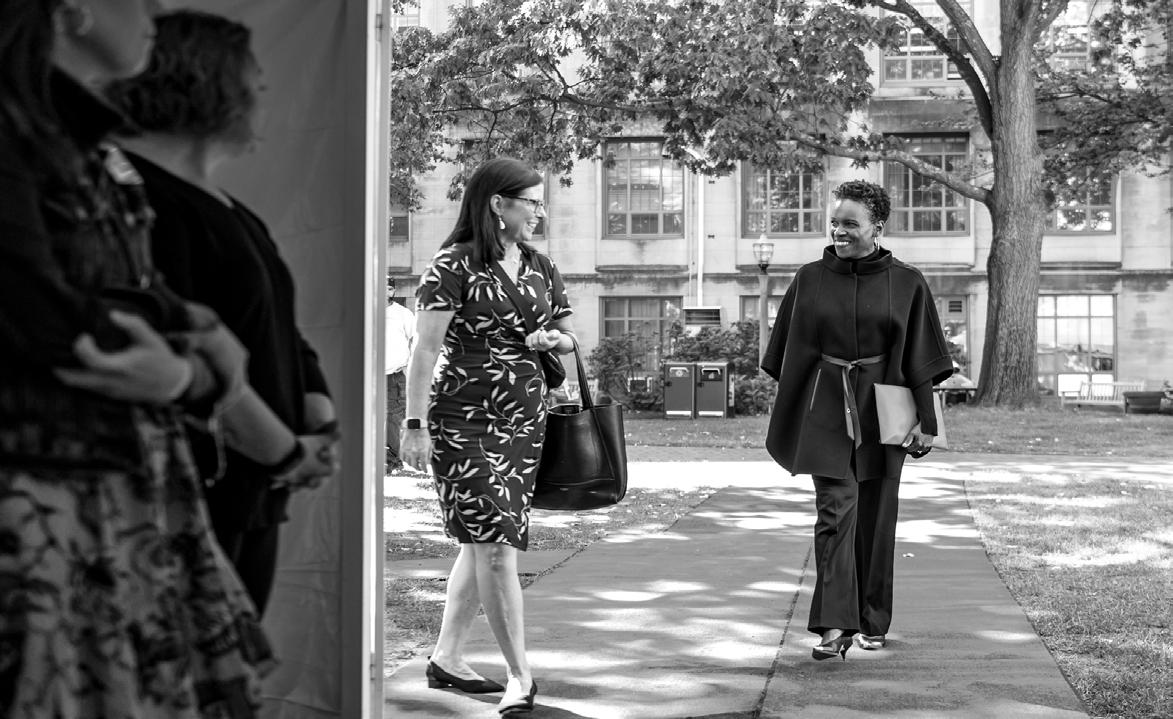
Melissa Gilliam, Boston University’s first female and first Black president, was announced Wednesday at a ceremony at the Tsai Performance Center and livestreamed for the larger BU community.
Following interim President Kenneth Freeman’s introduction, BU Board of Trustees Chair Ahmass Fakahany announced Gilliam as BU’s 11th president.
“We would need the whole day to cover all of her accomplishments,” Fakahany said. “She cares. She is curious, wants to understand our fabric and how to move us further to the next stage of excellence.”
Fakahany emphasized Gillian’s excitement on work with students.
“When we talk [about] our students, her face shines with excitement and pride,” Fakahany said. “It’s clear to [the Board] students, with their idealism, enthusiasm and aspirations, inspire her to work, to lead [and] to listen.”
Audience members filled the auditorium, among them were former BU President Robert Brown, BU Police Department Chief Robert Lowe and BU interim President Kenneth Freeman. A reception followed the ceremony.
Tonie Leatherberry, chair of the search committee and board of trustees members, gave a short speech thanking trustee members, search committee members and students for participating in the “monumental” search.
Leatherberry recognized Dean
of Students Jason CampbellFoster and the “students who engaged in the process.”
“Their leadership and passion for this institution represents the best of us,” Leatherberry said at the event.
Gilliam, who will assume the position July 1, is currently the Ohio State University’s executive vice president and provost. A standing ovation commenced after Gilliam took the stage.
“As President, I will be building on the achievements of talented leaders who came before me,” Gilliam said. “I’m working
with you to shape a shared vision for the future of Boston University.”
Gilliam started her speech by acknowledging her privilege to take on various roles in higher education institutions as a student, faculty member, administrator and provost.
Gilliam previously served as vice provost at the University of Chicago, where she founded the Center for Interdisciplinary Inquiry and Innovation in Sexual and Reproductive Health and served as dean of diversity and inclusion for the Biological
Sciences Division at University of Chicago Medicine.
Gilliam also previously taught obstetrics, gynecology and pediatrics, and researched adolescent health and education.
“As a scholar, I use multivariable frameworks and multi-system frameworks to understand adolescent health outcomes,” Gilliam said. “I ask how policy systems and institutions support or do not support their well being.”
Gilliam said she admires BU for its “policy of inclusion” that has been fundamental “from its
inception.”
“It has a global footprint in the research it conducts and the academic programs it offers around the world and in international students, faculty and staff that it attracts,” she said.
Gilliam also spoke about her parents’ influence inspiring her “unwavering confidence in human potential.” Her father was an accomplished artist and her mother was the first Black woman reporter at the Washington Post.
“Through him, I have an enduring commitment to the arts and humanities,” Gilliam said of her father. “Through both of them, I’ve watched them pave the way for others and I too share that commitment.”
Gilliam said her parents led her to one of her core beliefs that “talent is equally distributed, but opportunity is not.”
“A simple question guides my life’s work,” she said. “I asked, ‘why do some young people have adverse outcomes and how can that problem be rectified?’”
Gilliam also shared her “core commitments” as president which include providing students with a challenging education, nurturing the health of students and faculty and partnering with the City, State and higher education institutions to move BU forward.
Gilliam concluded her speech saying she will spend the upcoming months as presidentelect before she starts her role this summer “listening, learning and preparing to lead.”
“I am grateful to the BU global community for making me feel welcomed and for your partnership and the years to come,” she said. “There is boundless opportunity ahead.”
‘Thrilled’: BU faculty welcome new leader
BY CRYSTAL YORMICK DFP WriterBoston University faculty and professors welcomed the newlyannounced future president, Melissa Gilliam, whose appointment was made public Wednesday morning.
Dean of Students Jason Campbell-Foster said he was “thrilled” with the announcement of Gilliam as president.
“I couldn’t think of a better person to step in and lead us into the next chapter then Dr. Gilliam,” Campbell-Foster said. “I’m excited about the opportunity to work alongside her and learn from her and allow her to understand better the student experience.”
This sentiment is shared amongst top university administrators like interim President Kenneth Freeman, who will remain in his current role until the end of the academic year.
“Boston University has a bright future. I am very confident we will continue to advance as an institution under Dr. Gilliam’s leadership,” Freeman wrote in a statement to The Daily Free Press. “We are already working to ensure a seamless transition.”
Mariette DiChristina, dean of the College of Communication, expressed her admiration of Gilliam.
“I think in Dr. Gilliam we really have the epitome of a caring, multidisciplinary person which is just exactly the right fit for Boston University,” DiChristina said.
Gilliam is the first woman and the first Black president of the University, characteristics professors like Tina McDuffie, professor of the Practice of Broadcast Journalism, noticed.
“I think the impact of having a first black and first woman president is that everyone feels, or people who maybe haven’t felt represented, feel that they have some representation,” said McDuffie, advisor for BUTV. “I would hope that people from all different facets of life look at this University and feel like they can be a part of Boston University.”
Rachel Brulé, assistant professor of Global Development Policy, said the University was “far later” than they should be to appoint an African American and woman President, but is glad Gilliam has taken on the role of being this “trailblazer.”
“There is a lot of really important research and policy that’s happening [at BU],” said Brulé.“I’m really excited to see how Dr. Gilliam engages on all these fronts and I am really excited to see her magnify the voices of all the people who are engaged in sustaining fundamental transformation.”
Geoffrey Poister, associate professor of Film and Television in COM, said in order for diversity and compassion to be seen in society Boston University needs the “leadership of our educational institutions to reflect that.”
“An institution the size of a major university has the opportunity to be a role model,” Poister said. “Having a president who represents diversity and achievement and has a track record of really putting compassion into use gives Boston University a chance to be something that people can look up to.”
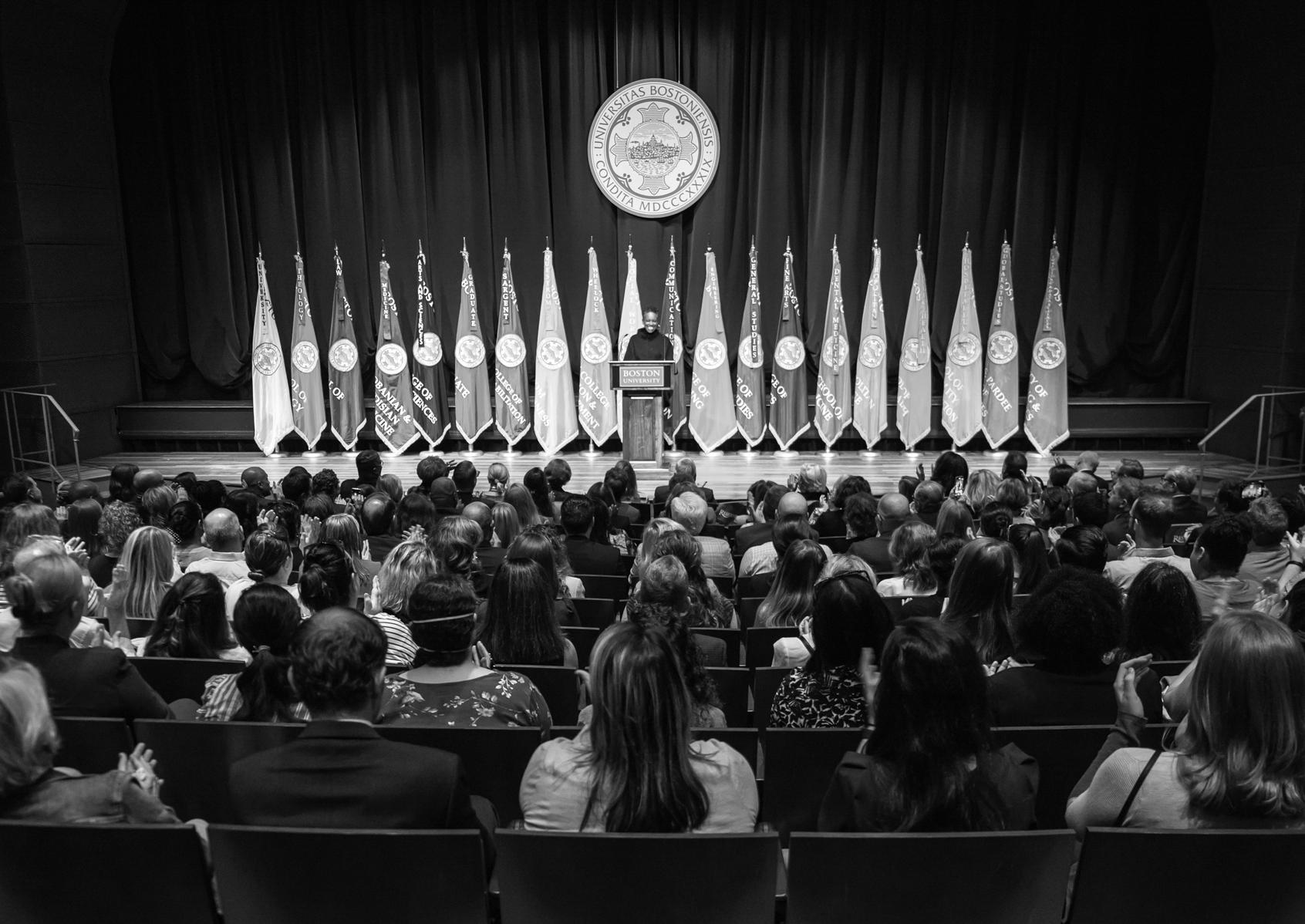
Tereasa Brainerd, a professor of Astronomy since 1995 and interim associate dean for Undergraduate Academic Programs and Policies in the
College of Arts and Sciences, echoed this sentiment in an email, stating that while the word “historic” is used casually, in this case this appointment is “nothing short of historic.”
“[Gilliam’s] appointment sends a clear message … that, as an institution, we are deeply committed to ‘traditional’ university values, as well deeply committed to fostering and growing a diverse scholarly community with diverse leaders at the very pinnacle of leadership,” Brainerd wrote.
Professors in COM took note of Gilliam’s accomplishments as well as the accomplishments of her mother, Dorothy Butler Gilliam, who was the first Black woman reporter to work at the Washington Post.
Brian McGrory, chair of the Journalism Department, said Gilliam is “hyper-qualified.”
“If you conjured the idea of a perfect president in this day and age for BU, that might well be her,” McGrory said. “I would have endless faith in anybody who was raised by a journalist as accomplished as her mother.”
Gilliam’s appointment as president will follow the term of President Robert Brown, who served as the BU President for 18 years.
“I expect the transition will be smooth,” Brainerd wrote. “When Dr. Gilliam arrives at BU, she will receive tremendous amounts of support from the university leadership, all of whom are no doubt incredibly excited to work with her and to assist her with implementing her vision for the future.”
DiChristina took note of how former presidents “pass the baton” of leadership to each other and said she thinks the university has set up the exchange of leadership
for Gilliam “perfectly.”
“I can’t help but be impressed at the way each leader has both paved the way but also help[ed] support the leader after them,” DiChristina said.
Prior to her career at BU, Gilliam worked at The Ohio State University as Executive Vice President and Provost and at University of Chicago as the Ellen H. Block Professor of Health Justice and Vice Provost.
Her former colleague, Wendy Smooth, described Gilliam as “tenacious.”
“Working with her is infectious,” Smooth said. “You want to do more, she’s doing more and you’re going to want to do more to match that tenacity.”
Smooth works as Senior Vice Provost for Inclusive Excellence at Ohio State, a position that “came into existence” when Gilliam joined the university. Smooth was also part of Gilliam’s senior leadership team.
“She felt very strongly about the need to have someone who could oversee the university’s strategic vision around inclusion and what it means to allow
every faculty, staff and student to feel as if they are a part of the institution,” Smooth said.
Gilliam will be inaugurated into BU as the president on Jan. 1, 2024, and will begin her duties as president on July 1.
“As President-Elect, Gilliam said herself, she’s not starting until July 1, but until then, she is going to continue her journey of learning about us at BU so that when she does take the helm formally, she’s going to be ideally positioned to succeed,” DiChristina said.
Poister reinforced the idea that Boston University should set an example for diversity.
“It starts at the top. I think actions and physical presence are more important than words,” Poister said. “A lot of people can talk endlessly about diversity and building community, but you need somebody who is able to show that. I think this new President gives us a chance for that to happen.”
Sydney Topf contributed to the reporting of this article.
Tannenbaum, Managing Co-Editor
Daisy
Levine, Features Co-Editor
On Wednesday morning, Boston University officials named Melissa Gilliam the University’s 11th president, making her the first female and first Black president in the school’s 184-year existence.
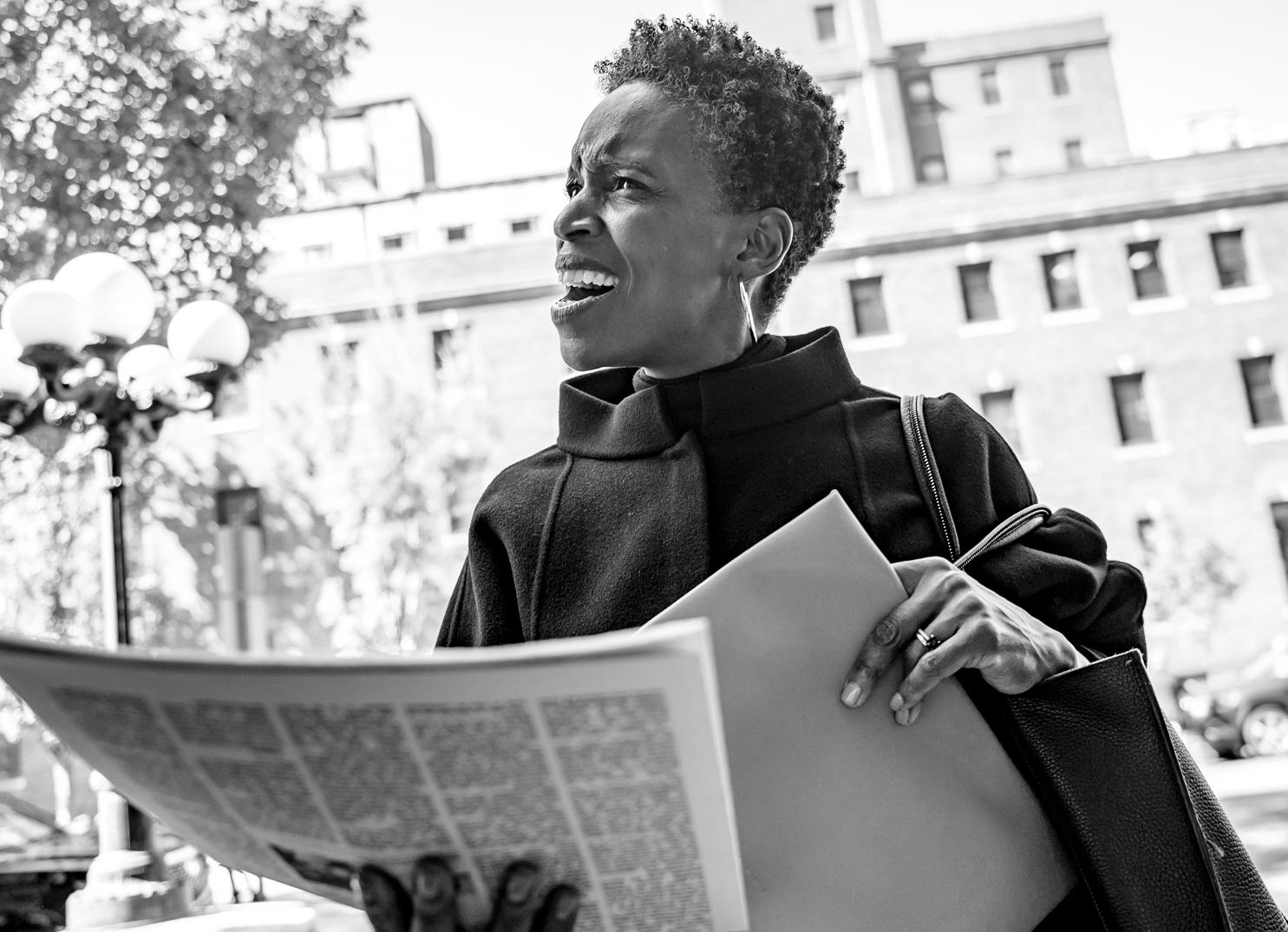
Gilliam, the current executive vice president and provost of The Ohio State University, is set to assume the presidency from interim president Kenneth Freeman on July 1, 2024 and officially succeed former president Robert Brown.
Gilliam’s appointment comes at such a volatile time in the school’s history. BU faced criticism in May after naming David Zaslav as the 2023 commencement speaker. The student body protested the choice due to Zaslav’s role in the failed negotiations that led to the Writers Guild of America strike, but the University remained firm in their selection.
The University made national headlines again in September after reports revealed mass layoffs and alleged mismanagement of funds at the Center for Antiracist Research after garnering over $43 million since its inception in 2020.
Many within the BU community are looking for a reliable leader to shape the future of the University. Gilliam is the perfect person to do just that.
Not only does Gilliam bring a diverse voice to the institution’s leadership — one which it noticeably lacks — but her impressive educational and professional background suggests that she has the ability to make a positive and lasting impact on BU’s culture.
Gilliam studied English literature at Yale University and earned her master’s degree in philosophy and politics from the University of Oxford. She also has a background in science and graduated from Harvard Medical School — later becoming a professor of obstetrics and gynecology and pediatrics at Ohio State.
This diverse academic background is perfect for what BU needs in a leader. Gilliam’s interdisciplinary knowledge allows her to approach any issue from a
variety of perspectives.

In the past, BU leadership has ostensibly neglected the needs of the student body in favor of promoting research. Gilliam has the opportunity to change that trend as well as the experience to do it successfully.
At 58 years old, Gilliam is relatively young for her new position at BU. Her age allows her to connect with the younger student population and reinstall a feeling of trust between the students and the administration.
Gilliam, who has worked with children throughout her medical career, seems to have a great understanding of how to best approach working with younger generations.
Having an approachable president is vital in order to address the institutional issues many students face, such as tuition and the cost of housing.
The total price of attendance before aid is currently estimated to be $86,363 and continues to increase each year, making it very difficult to attend school.
The price of tuition can be a deterrent for high school students looking to attend BU, especially those who come from marginalized and historically-oppressed communities who might struggle financially.
The decision to attend higher education shouldn’t be determined by one’s ability to pay tuition. Financial aid, while it does help alleviate some of the burden, does not provide nearly enough financial support for most students. Additionally, student loans tend to leave college graduates in debt for years after graduation.
With her new position, Gilliam has the opportunity to become a trailblazer in lowering the cost of higher education. Not only will this help current students who
struggle to make ends meet, but it will also attract a more diverse student body — something BU has been striving to accomplish for years.
The spike in tuition can be largely attributed to the increasing cost of housing, both on and off campus. On-campus housing accounts for an average of $11,600 on a student’s yearly bill and can be much more expensive depending on the type of housing.
This is an absurd price, especially considering the poor conditions many students live in. Many campus residencies have a plethora of issues, such as the lack of air conditioning, mold and animal infestation.
By simply diverting resources away from renovating non-residential buildings and toward fixing the housing crisis at BU, Gilliam could drastically improve students’ on-campus living conditions.
Although this is a lot to put on the shoulders of a person who was announced as the president less than a week ago, it’s a reasonable ask for students who have long been neglected by the University’s leadership.
However, Gilliam doesn’t have to immediately accommodate all the needs of each student for her legacy to be considered a success. The most important goal for Gilliam should be restoring the line of communication between the student body and the school administration.
And, if anyone can accomplish that, it’s Gilliam.
Students of Boston University should be hopeful about the new direction of the school’s leadership. Gilliam has all the qualities of a strong leader and has proven herself to be capable of making change.
There is still a long and tough road ahead for Gilliam and the BU community. Yet, for the first time in what feels like a long time, there is a light at the end of the tunnel.
This editorial was written by Opinion Co-Editor Brett Abrams.

